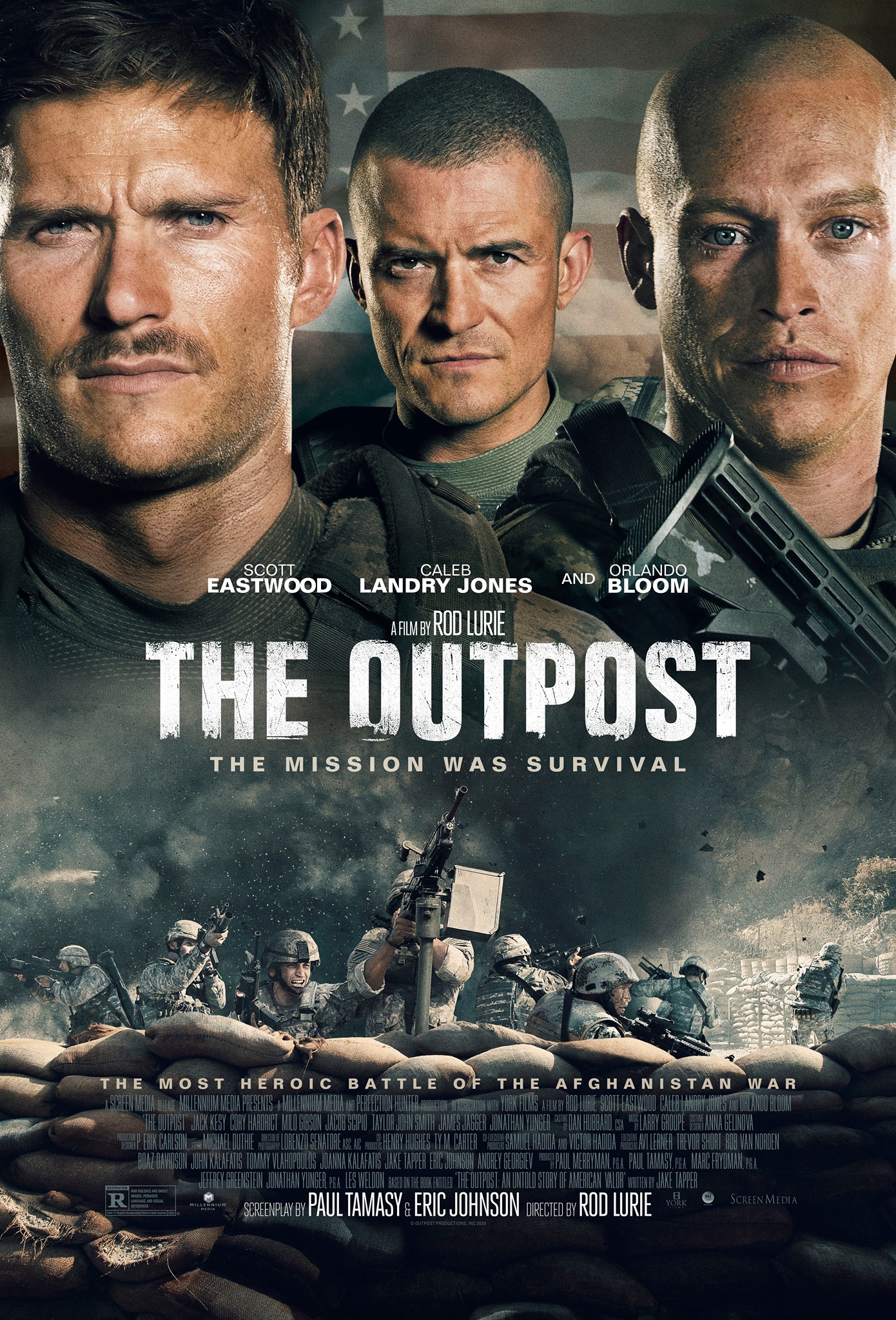 In July 2020, a movie debuted on Netflix (originally scheduled for a theatrical release, but COVID required changes to be made to the plan) to generally positive reviews. The Outpost is a somewhat classic war movie: gritty American Soldiers fight against all odds to defeat the enemy. Based on a true story, what made this movie different for me is that it was a story with which I was intimately familiar.
In July 2020, a movie debuted on Netflix (originally scheduled for a theatrical release, but COVID required changes to be made to the plan) to generally positive reviews. The Outpost is a somewhat classic war movie: gritty American Soldiers fight against all odds to defeat the enemy. Based on a true story, what made this movie different for me is that it was a story with which I was intimately familiar.
In June of 2009, I was deployed to Afghanistan in support of an Army infantry brigade, the 4th Brigade Combat Team of the 4th Infantry Division. I had been licensed for 5 months, 6 months post-internship, and was responsible for the mental health of 3,600+ Soldiers who were spread out over 15 locations in four provinces of Afghanistan. From the beginning, it was a challenging rotation. Our area of operations was extremely active with troops in contact (engaged by the enemy) daily. I had a home forward operating base (FOB), but spent nearly every day moving between all of the various FOBs and outposts that our brigade occupied either by helicopter or convoy. In the first months of the deployment, we had suffered many losses, including Soldiers killed in action (KIA) or catastrophically wounded. A big part of my job was to meet with groups of Soldiers following traumatic events to initiate a protocol for Traumatic Event Management (the Army’s spin on critical incident stress debriefing).
On October 3, 2009, I was “home” (on the large FOB where the brigade was headquartered), seeing patients in the clinic. Early in the day, I began to hear from officers in the tactical operations center that one of our units was in a battle that “looked pretty bad.” As the day unfolded, it became clear to many of us exactly how bad it was. The numbers were rolling in. One KIA. Two more KIA. Air support delayed. Enemy inside the wire. More KIA. Buildings on fire. In the end, eight U.S. soldiers were killed and I had a helicopter scheduled to take me to where I thought the troops would be the following morning.
I arrived at another FOB on the morning of October 4. Although the battle was over in the evening of October 3, the Soldiers who had been engaged remained at their outpost while preparations were made to close the outpost. I ended up being there for 3 days before those Soldiers finally arrived back to the larger FOB in the evening of October 6. A few more days were required for the 35 surviving Soldiers to get reset with showers, phone calls home, new equipment, etc., before the chaplain and I met with them in small groups. Over and over, each Soldier told their part of the story – the sights, sounds, thoughts, and feelings that they experienced over the course of the 12-hour battle. A few days later, we had the memorial service and then everyone went back to work. In the remaining 8 months of the deployment, those Soldiers continued to “soldier on” as we say in the Army. Some sought individual therapy and many did not, but I stayed connected to the platoons who had been involved in what became known as the Battle of Kamdesh, their stories echoing in my mind when I would see them in the chow hall, going to chapel, or using the computers in the morale center.

Eight fallen soldiers of the Battle of Kamdesh
In 2013, I was still serving in the Army when two Soldiers from the Battle of Kamdesh were awarded the Medal of Honor (Staff Sergeant Clint Romesha and Staff Sergeant Ty Carter) and all of a sudden everyone was talking about October 3, 2009, and the events that followed. Some of the Soldiers spoke publicly about having received mental health treatment, and one thanked his psychologist from the Rose Garden. We all know about the ethics of confidentiality, but no one prepares you for what to do when your patient names you in the national media.
The story of the Battle of Kamdesh was so compelling that it became a book, The Outpost, written by CNN Anchor Jake Tapper and was later adapted into the film. I received an unexpected phone call one day from the director, Rod Lurie, who said, “We know you helped those guys, and we’d like to include you in the film.” Rod said that he knew the battle had a significant impact on those who participated and he wanted to include that part of the story. One Soldier had volunteered to tell his story of starting therapy and thus a compelling scene was written into the script. While navigating releases of information and careful consideration of how to proceed, I spoke with the actress, Celina Sinden, who would be portraying me. (Although she was missing my signature red hair, she was lovely nonetheless.) We talked about what it’s like to meet with people immediately in the aftermath of trauma and the art of listening.

Photo from the movie set in Bulgaria, provided by Rod Lurie: Caleb Landry Jones (as SSG Ty Carter), Celina Sinden (as Captain Katie Kopp), and director Rod Lurie
In October 2019, I attended a private screening of the film alongside survivors of the Battle of Kamdesh and families of the fallen. It’s a compelling film for anyone to watch, but being seated next to the mother of a Soldier whose death is shown on screen…well, it was intense to say the least. I watched the story that I knew inside and out unfold on the screen before me, complete with realistic gunfire, explosions, and blood. “My” scene is at the end of the movie and it was a fitting conclusion for sure. I’m not ashamed to say that I completely broke down at the end of the film, letting go of 10 years of holding this story for the survivors.
 My experiences as an Army psychologist were not all quite this dramatic. Serving in a combat zone (twice – I went back for more in 2012) was the best job I ever had and one that I don’t ever want to do again, but I will be forever grateful for the opportunity. Our work is usually behind closed doors and we rarely get to talk about it publicly. But if you ever find someone in Hollywood wanting to tell your story, take it!
My experiences as an Army psychologist were not all quite this dramatic. Serving in a combat zone (twice – I went back for more in 2012) was the best job I ever had and one that I don’t ever want to do again, but I will be forever grateful for the opportunity. Our work is usually behind closed doors and we rarely get to talk about it publicly. But if you ever find someone in Hollywood wanting to tell your story, take it!
The author has no financial ties to the film, which is now available on Netflix.

Your story is amazing. I can't wait to see the movie. Thank-you so much for sharing. Sam Graham
Your story is amazing. I can't wait to see the movie. Thank-you so much for sharing. Sam Graham
Thank you Katie for your service to this country and for everything you're doing for IPA! I also look forward to viewing this film. Joy
Katie - thank you so much for sharing your experiences and everything you did to support these soldiers. I look forward to seeing the film.